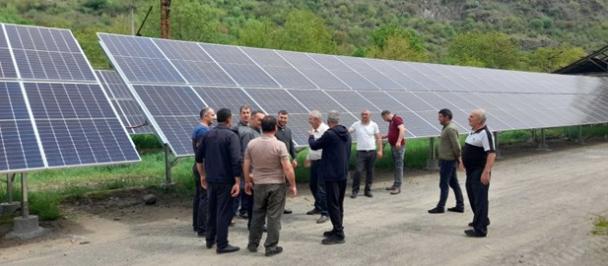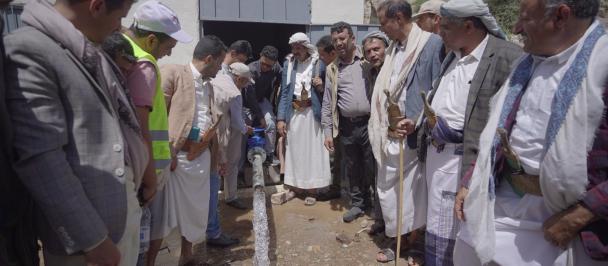AFRI CONVERSE Shines Spotlight on Sustainable Water Resources and Climate Resilience in Africa
August 15, 2023

Panel discussion during the session
As the world confronts complex global development challenges, including those related to climate change, the African continent is stepping up its own efforts as well as expanding partnerships for impact. In 2022, UNDP featured 50 disruptors, game changers and young and gifted Africans leading the way in innovating for climate. The Second Edition of Africa Innovates – a flagship magazine of UNDP’s African Influencers for Development - showcased innovations and homegrown solutions in food, agriculture, energy, e – mobility and improved livelihoods. At the heart of all of these unique contributions is the centrality of water – a resource that is so scarce, yet much needed for much of all of humanity’s endeavour.
How to create sustainability in the management of Africa’s water resources was the core topic at the second edition of AFRI CONVERSE 2023 – a multistakeholder dialogue platform jointly convened by the Japan International Cooperation Agency (JICA) and UNDP. Held in Tokyo, the event convened a global pool of experts from The United States, Japan and Uganda to share insights on effective methods and partnerships that can drive success.
“Africa faces severe water stress and recurring droughts, putting immense pressure on water access due to population growth and urbanization. Inadequate water infrastructure hinders sustainable groundwater usage” said Mr. AHOUANVOEGBE Sena Jules Pascal, a Master’s student at Tokyo City University and participant of JICA’s “African Business Education Initiative for Youth" program.
Ground water can be an important part of the solutions mix – but for that to yield, we must strengthen both the governance and management of groundwater resources – a process that must be data and technology driven - argued Pascal.
Notable declines in urban water coverage - from 58% in 2015 to 56% in 2020 and less than 49% coverage in rural areas, pose additional risk – leaving about 200 million urban and 300 million rural dwellers without access to clean water. But as Ms. Yoko Hattori, Director, Water Resources Team2, Water Resources Group, Global Environment Department at JICA noted, “Successful approaches must be context – relevant. Japan’s cooperation model is adapted to the unique needs of each country – with proper facility operation and maintenance, topographical, and natural conditions, being critical considerations.” JICA is engaged in 14 technical cooperation projects, providing training and dispatching youth as volunteers to expand its results which in Juba, South Sudan, has led to a 10,000-m3/day-capacity treatment plant. She also gave examples of projects in Rwanda.
The role of innovation in unlocking water resources was shared by Ms. Aya Tsuboi, CEO of Sunda Technology Global Co., Ltd., a Japanese start-up operating in Uganda. Her journey started as a JICA volunteer working with communities to solve water scarcity. This experience inspired her to develop "Sunda" - an ID tag system tracking water usage in real-time, so that residents only pay for the water they use, cutting down wastage and ensuring fair billing. About 10,000 ID tags are actively used every month
On her part, Ms. Kaoru Takahashi, Executive Director of WaterAid Japan, stressed the centrality of water as a thread connecting the SDGs – on health, nutrition, gender equality, and climate change. She called for more effective partnerships.
Her call is one that UNDP has rallied around – thanks to our recently launched Groundwater Access Facility (GaFa) in the Horn of Africa (HoA) – which is compiling a comprehensive set of Groundwater Data Information Systems, mapping both shallow and deep groundwater aquifers in the borderlands, identifying at least 30 vulnerable hotspot sites with a view to seeking partnerships to build the infrastructure to harvest this water.
According to Mr. Ravi Kammila, Water Resource Partnerships at the UNDP African Borderlands Centre, “ UNDP wants to scale this initiative across the Horn of Africa to the Sahel, and calls on the government of Japan to collaborate with us – under the framework of TICAD.”
AFRI CONVERSE continues with its bi-monthly engagements to build momentum for the Tokyo International Conference on Africa’s Development 9 (TICAD 9).

 Locations
Locations

